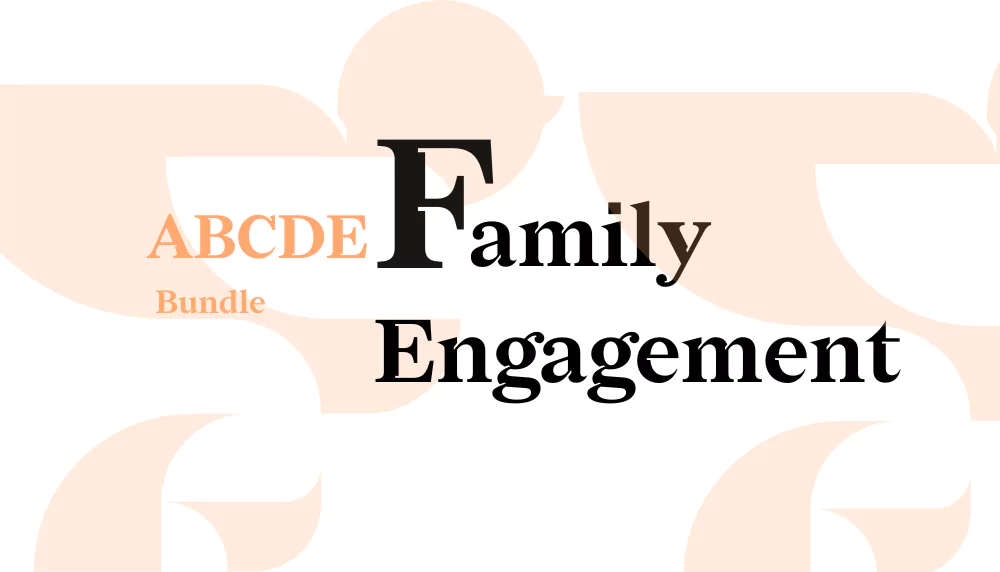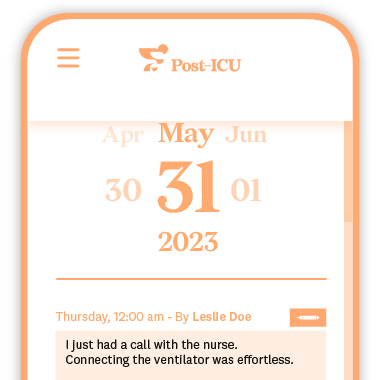One of the biggest challenges a person can face is fighting for their life – and this is exactly what happens to most ICU patients. This fight is full of hurdles and many patients can benefit from proper family support.
This is a fact supported by evidence. Family engagement and empowerment are among the six elements of the ABCDEF – ICU Liberation Bundle. Although last of the six, the F element is important both in the ICU and after it, during the recovery process.
But family engagement implementation is challenging. This is a complex element that requires various resources for a successful implementation. Let’s explore the strategies for introducing and strengthening family engagement in the ICU.
The Importance of Proper F Element Implementation
- Supports recovery: the presence and the involvement of family in the ICU helps patient-centered care which is proven to improve outcomes for patients. Additionally, families are often crucial for patient compliance and encouraging their loved ones to actively participate in their rehabilitation process, which is important for overcoming Post-Intensive Care Syndrome (PICS)
- Reduced anxiety: loved ones, families or friends provide psychological support and can reduce the feelings of anxiety and the overall psychological impact of an ICU stay
- Informed decision-making: family members and friends know their loved ones better than the care team and can therefore be an integral part in decision making, representing the patient’s voice
- Better care team performance: the family is another set of eyes and ears in the ICU and can observe and provide additional insights to the care team that would help nurses and clinicians provide better care
- Reduced length of stay: studies show that engaged families streamline care making it more effective and therefore shortening the time that the patient needs to be in the ICU1Soleimani, M., Fakhr‐Movahedi, A., & Yarahmadi, S. (2024). Family engagement in the care of infectious patients in intensive care units: A hybrid concept analysis. Nursing open, 11(3), e2117.2Burns, K. E., Misak, C., Herridge, M., Meade, M. O., & Oczkowski, S. (2018). Patient and family engagement in the ICU. Untapped opportunities and underrecognized challenges. American journal of respiratory and critical care medicine, 198(3), 310-319.3Shin, J. W., Choi, J., & Tate, J. (2023). Interventions using digital technology to promote family engagement in the adult intensive care unit: An integrative review. Heart & Lung, 58, 166-178.
Strategies for Effectively Engaging Families in ICU Care
The Society of Critical Care Medicine, along with multiple studies done on this topic4Davidson, J. E., Aslakson, R. A., Long, A. C., Puntillo, K. A., Kross, E. K., Hart, J., … & Curtis, J. R. (2017). Guidelines for family-centered care in the neonatal, pediatric, and adult ICU. Critical care medicine, 45(1), 103-128., offer a wide range of options and interventions to implement the F element of the ICU Liberation bundle, and increase family engagement. These evidence-based strategies are outlined below:
Enable Family Presence
The only way that family engagement and involvement in care are possible is if the family has an option to be physically present in the ICU. Ideally, an ICU would offer open or flexible visiting hours so any family can have an opportunity to spend time in the ICU. Participating in team rounds is another way to engage families, and ensure they are up-to-date with the care plan as well as give them an option to share their insights. Finally, families should be offered to be present during resuscitation efforts which provides a sense of involvement in critical moments.
Introduce Family Support Programs
Families of ICU patients need both psychological and educational support to be ready to care for their loved ones. Family education programs reduce anxiety, stress and depression, by increasing family member competence and confidence as caregivers. Informational leaflets are also a tool that can be used for education. Besides educating the family, psychological support is also necessary. Peer to peer programs have shown to be effective, as well as the use of ICU diaries.
Use Effective Communication Strategies
Routine interdisciplinary family conferences are vital for enhancing communication and building trust between clinicians and families. Structured communication approaches, like the “VALUE” mnemonic, emphasize active listening, empathy, and supportive statements, crucial for family members of critically ill patients. Offering a written bereavement brochure to families of dying patients can reduce anxiety, depression, and post-traumatic stress. Training ICU clinicians in family-centered communication as part of critical care training improves clinician confidence and family satisfaction, fostering a supportive ICU environment.
Introduce Specific Consultations and ICU Team Members
Families of critically ill patients benefit from proactive palliative care consultations which decrease ICU and hospital length of stay. If there are value-related conflicts between clinicians and families, ethics consultations can address them. Additional team members can also be valuable:
- Psychologists using cognitive behavioral techniques can support mothers of preterm babies
- Social workers and family navigators enhance communication and satisfaction.
- Spiritual support from advisors or chaplains meets families’ spiritual needs and accreditation standards, ensuring holistic care.
Operational and Environmental Adjustments
Making small adjustments to protocols and the environment can greatly enhance the experience for families. Establishing consistent practices for sedation and pain relief during the withdrawal of life support helps maintain patient comfort and dignity. Including nurses in decision-making and equipping them with the skills to support families can shorten ICU and hospital stays and improve communication. Implementing noise reduction techniques, maintaining a clean environment, and offering private rooms can boost satisfaction for both patients and families. Additionally, addressing family sleep needs and providing suitable sleep surfaces can help mitigate the negative effects of sleep deprivation
Implementing Family Engagement and Empowerment in Your ICU
Now that you’re familiar with the recommended strategies, you might be wondering what’s the best approach when it comes to the implementation of these recommendations. The Society of Critical Care Medicine solved this problem by creating a free Gap Analysis Tool. This tool helps you assess the current practices in your ICU and provides recommendations based on this assessment. The results of this analysis will yield at least 5 recommendations ordered by priority i.e. by how important and impactful they are for family engagement and empowerment.
The Post-ICU Diary – A tool for family engagement
Families need to be present in the ICU to be engaged and participate in care. However, a digital ICU diary can keep the families engaged even when they are not physically present in the ICU, and maintain the momentum of engagement even when the critical care team doesn’t have access to the family. The Post-ICU digital diary is:
- Accessible from anywhere – whether the family is right next to the patient, at home, at work, they can access the diary, create an entry or read what the care team has written
- Easy to use – the digital diary looks like a messaging app which most people know how to use
- Privacy-preserving – the family/patients control access and own the information so entries can still be made without the risk of someone opening a notebook and reading patient information
The Post-ICU Digital Diary is used and loved by many patients, families and care teams. Reach out to our team to learn how Post-ICU can help you increase family engagement.
Writing in and Navigating an Existing ICU Diary
Watch the ICU Diary DemoSources
- 1Soleimani, M., Fakhr‐Movahedi, A., & Yarahmadi, S. (2024). Family engagement in the care of infectious patients in intensive care units: A hybrid concept analysis. Nursing open, 11(3), e2117.
- 2Burns, K. E., Misak, C., Herridge, M., Meade, M. O., & Oczkowski, S. (2018). Patient and family engagement in the ICU. Untapped opportunities and underrecognized challenges. American journal of respiratory and critical care medicine, 198(3), 310-319.
- 3Shin, J. W., Choi, J., & Tate, J. (2023). Interventions using digital technology to promote family engagement in the adult intensive care unit: An integrative review. Heart & Lung, 58, 166-178.
- 4Davidson, J. E., Aslakson, R. A., Long, A. C., Puntillo, K. A., Kross, E. K., Hart, J., … & Curtis, J. R. (2017). Guidelines for family-centered care in the neonatal, pediatric, and adult ICU. Critical care medicine, 45(1), 103-128.





